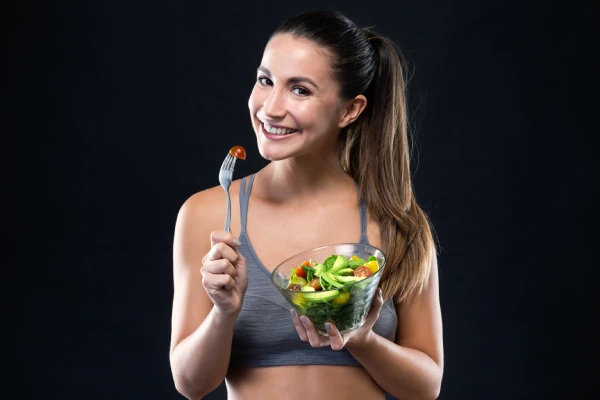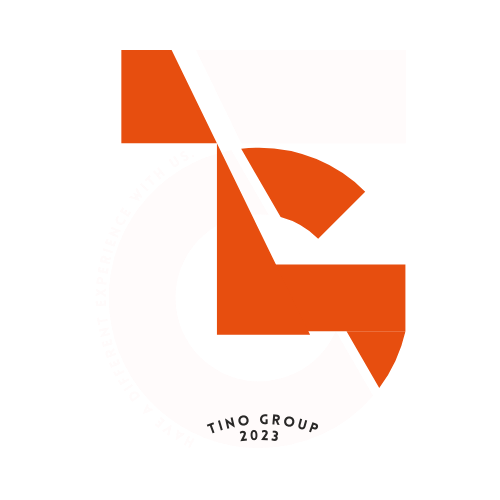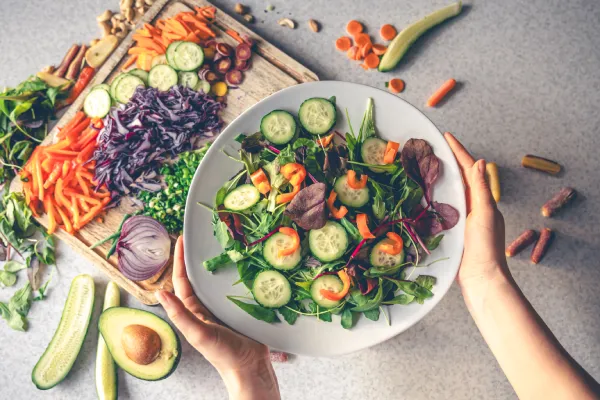The vegetarian diet has become increasingly popular in recent years. This diet is associated with a lower risk of chronic diseases, as well as weight loss. However, it may be difficult for some individuals, especially those consuming a lot of refined carbohydrates or processed foods, to lose weight on a vegetarian diet.
What is a vegetarian diet?
Vegetarian diets exclude meat, fish, and chicken. Some people may follow this diet for religious or ethical reasons, while others look for its possible health benefits.
main types of vegetarian diets
The main types of vegetarian diets include:
- Lacto-ovo-vegetarian: This diet includes eggs and dairy products, while it excludes meat, fish, and chicken.
- Lacto-vegetarianism: In this diet, dairy products are consumed, while eating eggs, meat, fish, and chicken is forbidden.
- Ovo-vegetarianism: This diet allows for the consumption of eggs and forbids dairy products, meat, fish, and chicken.
- Veganism: This diet excludes all animal products such as honey, dairy products, and eggs.
Vegetarian diets usually focus on fruits, vegetables, whole grains, legumes, nuts, and seeds. These foods are rich in fiber, micronutrients, and beneficial plant compounds, and are lower in calories, fat, and protein compared to animal foods.
Given the emphasis of vegetarian diets on nutrient-rich foods, following these diets is associated with a reduced risk of heart diseases, some cancers, diabetes, and high blood pressure.
In addition, the results of some studies have suggested the adherence to a vegetarian diet as an effective way to lose weight. However, the benefits of vegetarianism largely depend on the types of consumed foods, as well as your overall eating habits.
A pure vegetarian diet, which focuses on processed and high-fat foods, has fewer advantages in comparison with a whole plant-based diet does. Further, the pure vegetarian diet may exhibit several disadvantages.

Natural weight loss solution
General tips for a vegetarian diet:
- Increase your protein consumption: Protein is important for feeling full and maintaining muscle mass during weight loss. Legumes, nuts, and seeds are known as some good sources of plant protein.
- Reduce carbohydrate intake: Some carbohydrates such as fruits and vegetables are healthy, but avoid unhealthy foods like white bread, macaroni, and white rice.
- Keep yourself hydrated: Drinking plenty of water is important to increase metabolism and eliminate toxins from the body.
- Create a balanced meal plan: Make sure your meals and snacks contain a variety of fruits, vegetables, whole grains, legumes, and nuts.
- Avoid overeating: Eat smaller, more frequent meals instead of three large meals in a day. This helps you to feel full throughout the day and prevent overeating.
- Avoid artificial sugar: Consuming artificial sugar can add too many calories to your diet and cause weight gain.
- Do exercise: Regular exercise along with diet is essential to lose weight and maintain health.
- Eat small and frequent meals: Eating small and frequent meals assists you in feeling full during the day and preventing overeating.
Related content: How to tighten your loose belly skin after weight loss?
Weight loss obstacles to a vegetarian diet
It may seem that vegetarianism is an effective way to lose excess weight, while several factors can hinder this issue.
Eating large meals and protein deficiency:
Receiving more calories than you need can result in gaining weight. Even if you feel full by eating nutritious foods on a vegetarian diet, you may help yourself in having larger meals than you need.
This issue is especially common in the case of protein deficiency. Protein can increase fullness by lowering the level of hormone ghrelin, which regulates appetite, which may in turn decrease your calorie intake and contribute to weight loss
If you do not consume enough protein, you may eat more food to feel full, which hinders your weight-loss efforts. Vegetarian diets can easily meet your protein needs although you may have trouble eliminating meat from your diet at the beginning.
Consuming refined carbohydrates excessively
Foods such as bread, pizza, and macaroni, which are high in refined carbohydrates, can be easily overeaten on a vegetarian diet. These foods are widely available and may sometimes be the only vegetarian options at restaurants or parties.
Some researchers have found that refined carbohydrates cause the release of excess insulin, a hormone regulating blood sugar. This may also assist in gaining weight. The results of a study on about 500,000 adults revealed a strong relationship between higher insulin levels after carbohydrate consumption and a greater body mass index (BMI).

Overeating high-calorie foods
When transitioning to a vegetarian diet, you may eat significantly more high-fat vegetarian foods. Vegetarian meals often contain nuts, seeds, nut butters, avocados, or coconut. These foods are incredibly nutritious and filling, each gram of which provides 9 Cal, while each gram of protein and carbohydrates has 4 Cal. For example, two tablespoons (32 g) of peanut butter have 191 Cal, 148 Cal of which is from fat.
Additionally, many people eat more than the amount recommended for nut butter and other healthy fats.
Focusing on the highly-processed vegetarian foods
Losing weight may be difficult for you if you rely heavily on processed foods as a part of a vegetarian diet.
Countless products can be technically considered vegetarian although they contain unnecessary additives and unhealthy ingredients. Some of these foods include veggie burgers, meat alternatives, frozen food, baked goods, packaged desserts, and vegan cheese.
If you are looking for health and beauty, Tinogroup Healthy Care Agency puts the key to your dreams in your hands by providing unique services.
FAQs about vegetarian diet for weight loss
1. What is the best vegetarian diet for weight loss?
The best vegetarian diet for weight loss emphasizes eating a variety of healthy vegetarian foods such as fruits, vegetables, legumes, whole grains, nuts, and seeds. You should also avoid processed foods, sweet drinks, and unhealthy fats.
2. Is a vegetarian diet right for me?
A vegetarian diet can be safe and effective for most people. However, it is important to consult your doctor to make sure you are getting all the necessary nutrients. A vegetarian diet is generally beneficial for the individuals looking to lower cholesterol and blood pressure, as well as decreasing the risk of some diseases.
3. What are the benefits of following a vegetarian diet?
A vegetarian diet can assist in losing weight, improving heart health, controlling blood sugar, and reducing the risk of some cancers. Furthermore, it may increase the consumption of fiber, vitamins, and minerals.
4. How much vegetarian food should I eat per week?
It depends on your goals and lifestyle. If you currently eat on a carnivore diet, even one or two vegetarian meals per week can be helpful. If you are looking to lose weight, you can eat more of these vegetarian foods.

